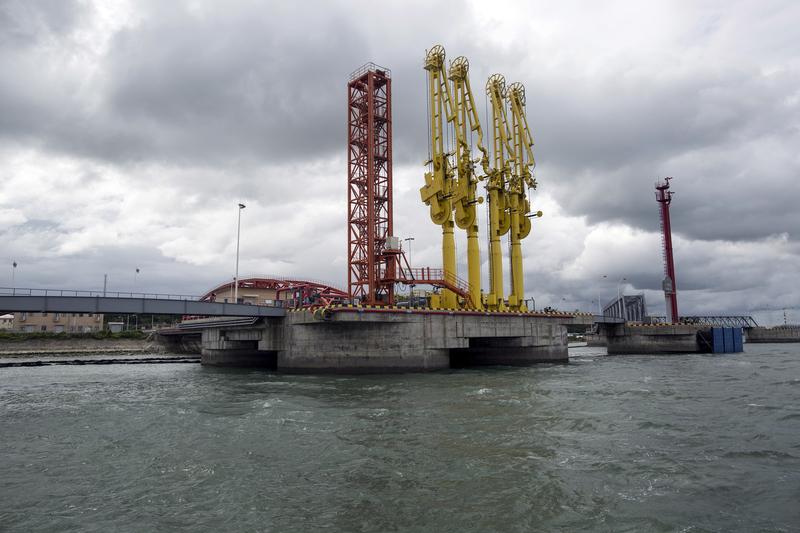China is looking to take a stake of up to 85 percent in a strategically important sea port in Burma, according to documents reviewed by Reuters, in a move that could heighten tensions over China’s growing economic clout in the country.
Beijing has been pushing for preferential access to the deep sea port of Kyaukphyu on the Bay of Bengal, as part of its ambitious “One Belt, One Road” infrastructure investment plan to deepen its links with economies throughout Asia and beyond.
A consortium led by China’s CITIC Group has proposed taking a 70-85 percent stake in the $7.3 billion deep sea port, according to negotiating documents seen by Reuters and three people familiar with the talks between the Chinese state-owned conglomerate and Burma’s civilian government.
The size of the proposed Chinese stake is substantially larger than the 50/50 joint venture proposed by Burma late last year, an offer rejected by CITIC, said two people involved in the talks.
Well-placed sources told Reuters last month that China had signalled it was willing to abandon the controversial $3.6 billion Myitsone dam project in Burma, but would be looking in return for concessions on other strategic opportunities in the Southeast Asian nation — including the Bay of Bengal port.
Kyaukphyu is important for China because the port is the entry point for a Chinese oil and gas pipeline which gives it an alternative route for energy imports from the Middle East that avoids the Malacca Straits, a shipping chokepoint.
The port is part of two projects, which also include an industrial park, to develop a special economic zone in western Arakan State. CITIC was awarded the lead role in both initiatives in 2015.
Beijing-based CITIC, China’s biggest and oldest financial conglomerate, did not respond to several requests for comment on Friday. China’s Foreign Ministry did not immediately respond to a faxed request for comment.
Negotiations between Burma and CITIC, which sources said were set to start next week in the country’s commercial hub Rangoon, come amid a Chinese diplomatic push to forge better ties with its resource-rich neighbour.
Burma’s leaders have traditionally been wary of domination by China.
But the country last month signed an agreement that will see oil pumped through the pipeline from Kyaukphyu across Burma to southwestern China, while leader Aung San Suu Kyi is due to visit Beijing for a summit on “One Belt, One Road,” President Xi Jinping’s signature policy, in mid-May.
One of the sources, who declined to be named, said CITIC was in the “driving seat” on the port project, and that Burma was unlikely to ask for a stake of more than 30 percent due to opposition from the Chinese firm.
“Some people worry that China would have the power to do anything they want and control the project if it owns 85 percent,” said the person, who is familiar with the thinking of policymakers in Burma.
“But Myanmar doesn’t have other options,” the person added, citing the Burmese government’s financial constraints. The source did not specifically mention a quid pro quo over the Myitsone dam.
A second source close to Burma’s policymakers corroborated that account, adding that Burma has agreed to choose from one of four options proposed by CITIC, leaving it with a stake ranging from 15 to 30 percent.
“Myanmar has no other choice but the four options given by CITIC,” said the second person, who is involved in the talks.
Funding would be split between Burma and the CITIC-led consortium in proportion to the stake agreed, the two sources said.
Soe Win, who leads the management committee of the special economic zone, confirmed negotiations would start next week but declined to comment on the deal, citing the confidentiality of the talks.
[related]
The nearly $10 billion Kyaukphyu Special Economic Zone, which Burma’s government has said would create an economic hub akin to Singapore covering 4,289 acres, is part of Burma’s plan to boost the economy in one of its poorest regions.
A second consortium led by CITIC has also proposed taking a 51 percent stake in the $2.3 billion industrial park, an offer Burma has agreed to, said the two people involved in the talks.
Soe Win said environmental and social impact studies would soon be conducted by Burma’s environmental ministry, with construction due to start in 2018.
The economic zone faces opposition from activists and residents who criticised the tender process and said the development would have a negative impact on local people.
Around 20,000 people are at risk of losing their homes and livelihoods due to land acquisition for the zone, according to the International Commission of Jurists, a human rights watchdog.
CITIC’s consortiums include China Harbor Engineering Company Ltd, China Merchants Holdings, TEDA Investment Holding and Yunnan Construction Engineering Group. The only non-Chinese state-owned company involved is Thailand’s Charoen Pokphand Group.



